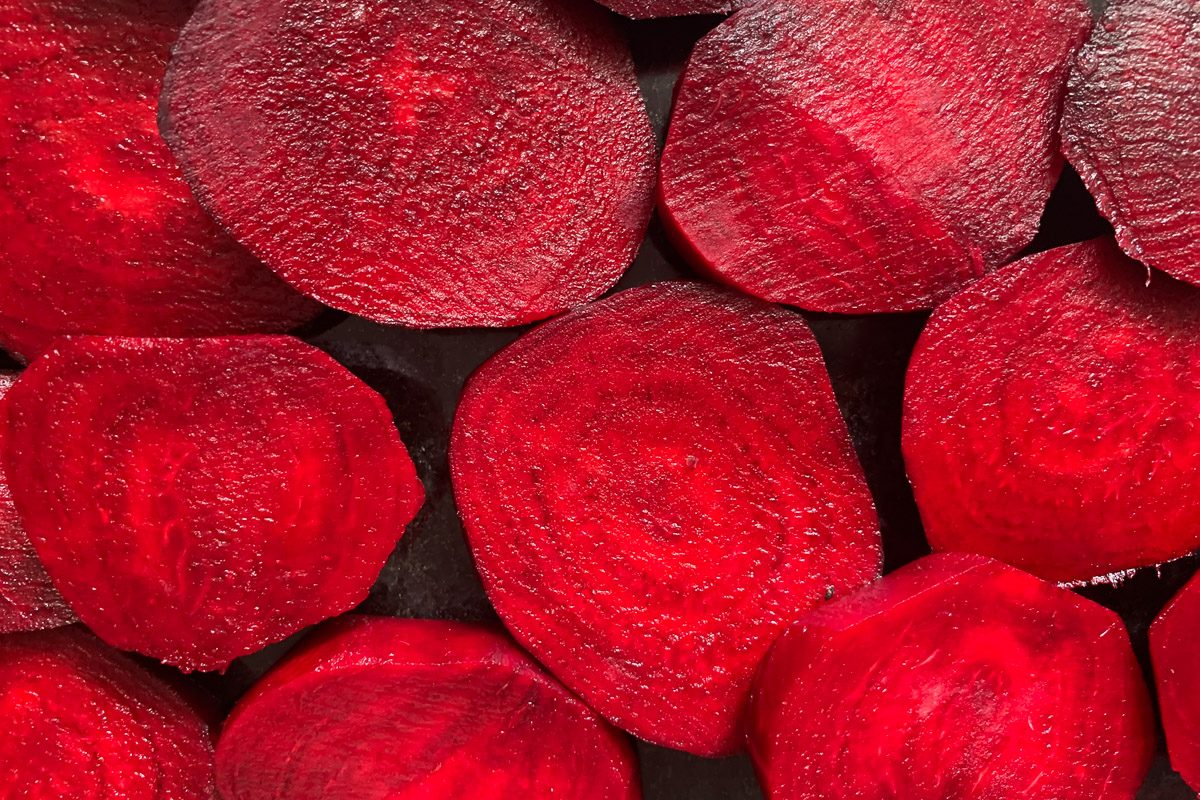An expert MD explains what red poop could mean for you, from harmless causes to signs of something more serious.

“Why Is My Poop Red?” 9 Possible Reasons, from a Cleveland Clinic G.I. Doctor


Causes of red poop
1. You have hemorrhoids
Hemorrhoids, which are swollen blood vessels in the rectum or anus, are one of the most common reasons for red poop.
“Patients may describe bright red blood on the tissue paper after wiping, red streaks on their stool, or even a few drops of blood dripping into the toilet bowl,” says Dr. Jirik. This type of bleeding usually happens after a bowel movement and “tends to be a benign, brief and self-limited issue,” though in some cases, it can be more severe.
Hemorrhoids are often painless unless they’re external. Constipation and straining during bowel movements can make them worse. Dr. Jirik recommends eating more soluble fiber, staying well hydrated, and using gentle laxatives when needed. Topical steroid creams may help reduce discomfort, and in more serious cases, surgery may be considered.

2. It could be an anal fissure
Anal fissures are small tears in the lining of the anus, often caused by passing hard stools. Like hemorrhoids, they can lead to bright red bleeding—especially during or after a bowel movement.
They’re sometimes mistaken for hemorrhoids, but fissures are more likely to cause sharp or stinging pain. Treatment usually includes stool softeners, sitz baths, and topical creams to promote healing.

3. It may be a sign of colon polyps or colorectal cancer
In more serious cases, red stool may be a symptom of colon polyps or colorectal cancer. These growths can bleed, especially if they become ulcerated. “Patients may have some associated changes in bowel habits or abdominal pain, but many others have no other symptoms other than bleeding,” says Dr. Jirik.
“Colorectal cancer is on the rise in young adults under 50 years old,” she adds. That’s why it’s important to speak with your doctor if you notice blood in your stool, even if you feel fine otherwise. Depending on your symptoms and risk factors, your doctor may recommend a colonoscopy to examine the inside of your colon and identify the source of the bleeding. If polyps are found, they can often be removed during the same procedure.

4. You have an inflammatory condition in the colon
Inflammatory bowel disease (IBD), which includes Crohn’s disease and ulcerative colitis, can also cause red or bloody poop. Another cause is infectious colitis, which is an infection of the colon often caused by bacteria such as E. coli or Salmonella.
“These are usually associated with significant abdominal pain and/or cramping and diarrhea, and may or may not be associated with fevers,” explains Dr. Jirik.
Treatment for IBD may involve steroids or other anti-inflammatory medications. In cases of infectious colitis, antibiotics may be needed, but only after the infection is confirmed with a stool test.

5. You have diverticulosis or diverticulitis
Diverticulosis is a condition where small pouches (called diverticula) form in the wall of the colon. Sometimes, one of these pouches can bleed, causing bright red blood in the stool and often in large amounts.
Dr. Jirik notes that “bleeding from a diverticular source typically presents as large-volume bleeding with lightheadedness and no abdominal pain.”
In many cases, the bleeding stops on its own. But if it continues or causes symptoms like dizziness or fatigue, medical treatment may be needed. This could include IV fluids, monitoring, and sometimes a colonoscopy to stop the bleeding.

6. It could be an arteriovenous malformation (AVM)
AVMs are abnormal, fragile blood vessels in the colon that can bleed suddenly—sometimes without pain or warning as Dr. Jirik points out. They’re more common in older adults and may be found during a colonoscopy.
If the bleeding is ongoing, your doctor may treat it with cauterization during the procedure or recommend additional monitoring.

7. You had radiation therapy
If you’ve undergone radiation therapy for pelvic or abdominal cancers, red stool could be a delayed side effect. Radiation can irritate the lining of the colon or rectum, leading to inflammation and bleeding—a condition known as radiation proctitis.
Dr. Jirik notes that this type of bleeding “tends to be painless” and is usually treated with anti-inflammatory medications or topical therapies.

8. You ate red-colored foods
Not all red poop is caused by bleeding in the digestive tract. In many cases, it’s just something you ate. “There are false alarms when it comes to red stool,” says Dr. Jirik. “This is secondary to ingestions that may make the stool appear bloody when in fact it’s just tinted red.”
Common offenders include beets (which can also turn urine pink), red gelatin, fruit punch, and red-dyed snacks like hot Cheetos. If you’ve recently eaten any of these, chances are the color is harmless and temporary.

9. You took a medication that tinted your stool
Some medications and supplements can change the color of your poop to a reddish or orange hue. Antibiotics like rifampin are known for causing this effect. This kind of color change is usually harmless, but it can still be unsettling. If you’re unsure whether a medication is responsible, talk to your doctor or pharmacist.

When to see a doctor for red poop
If you notice red in your poop—or have any concern about possible rectal bleeding—it’s important to talk to your doctor, says Dr. Jirik. In some cases, a colonoscopy may be recommended to not only determine the cause but also to treat the problem if needed. If the bleeding is severe or you’re feeling lightheaded, seek immediate care at an emergency room.
For daily wellness updates, subscribe to The Healthy by Reader’s Digest newsletter and follow The Healthy on Facebook and Instagram. Keep reading:
Here’s How Often You Should Have a Bowel Movement, Says a Gastroenterologist




















